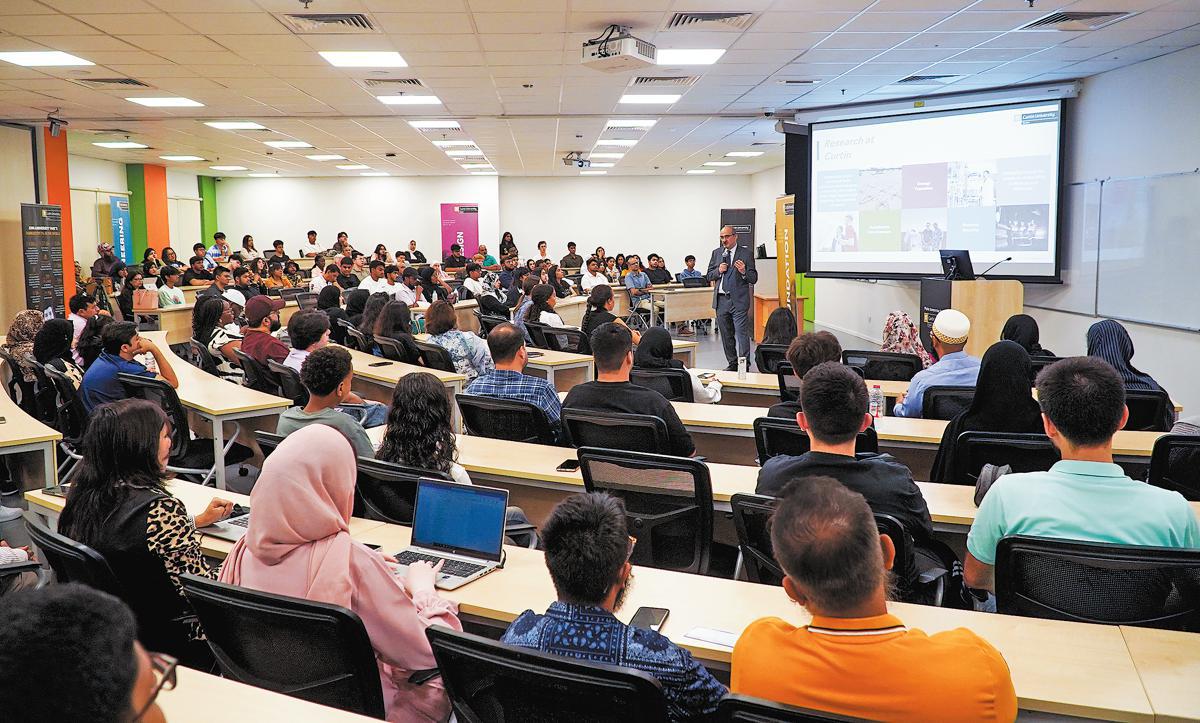Middle East rises in popularity as overseas study destination
Business, cultural connections, jobs and BRI attract Chinese to region's universities


Under the searing sun, 19-year-old Wu Yuqing dragged her suitcase across the sprawling campus of King Fahd University of Petroleum and Minerals in Saudi Arabia — her new home for the next four years.
Just a day earlier, she had been in her hometown of Shuozhou, Shanxi province. Nearly 24 hours later, after taking a train to Beijing and a plane to Abu Dhabi in the United Arab Emirates, and then making a final hop to Dammam in eastern Saudi Arabia, she started her overseas study experience at the university.
Wu is among a small but growing group of Chinese students now turning away from the well-trodden paths to North America, Europe and Australia, and toward the Middle East — a region once seen as distant, but now increasingly tied to China through trade, infrastructure and education.
When she stepped off the plane in mid-August, the heavy, humid air from the nearby coast engulfed her.
"The university is huge, a bit like a large community," Wu said after her first walk around the campus. "There are kindergartens, primary, middle and high schools here, separate shopping centers for men and women and a medical center — even getting around requires the school bus, because walking would take too long."
























